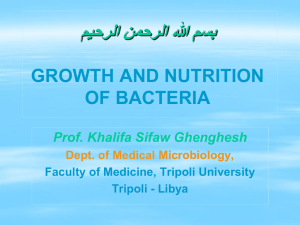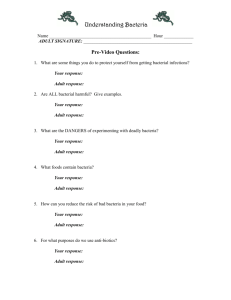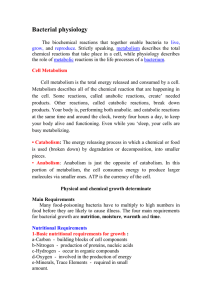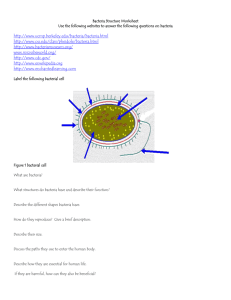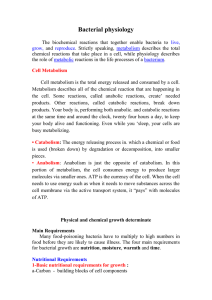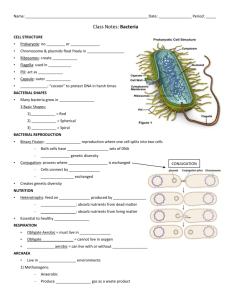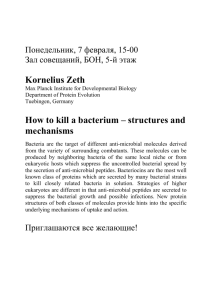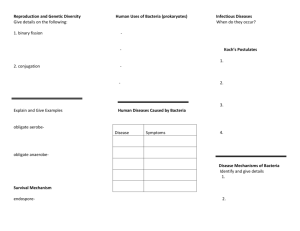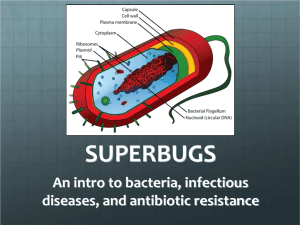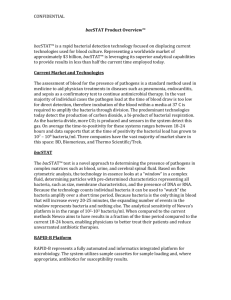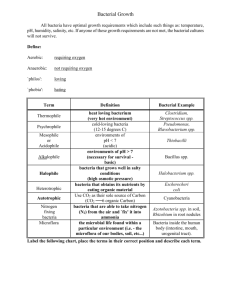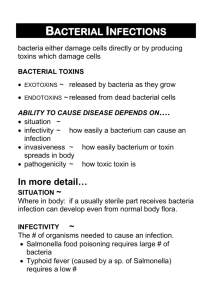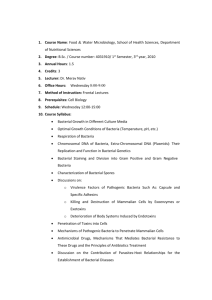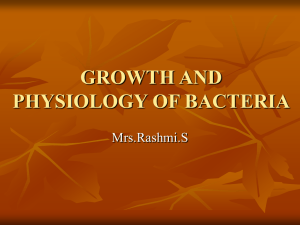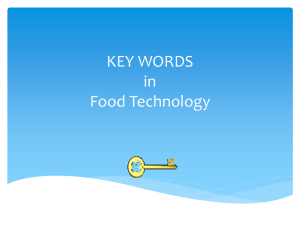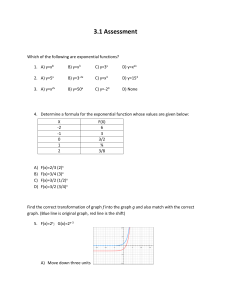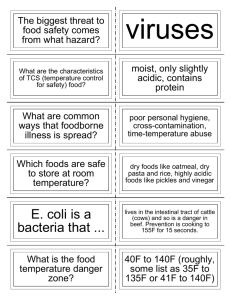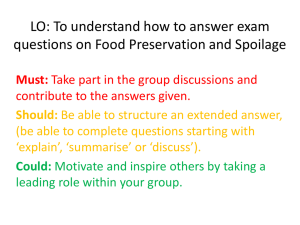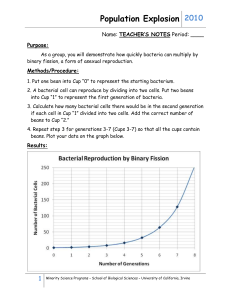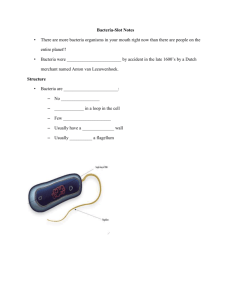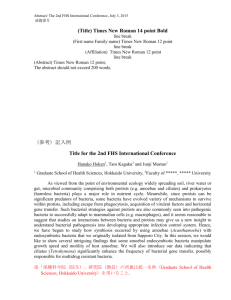Conditions for bacterial growth pages 54-55
advertisement
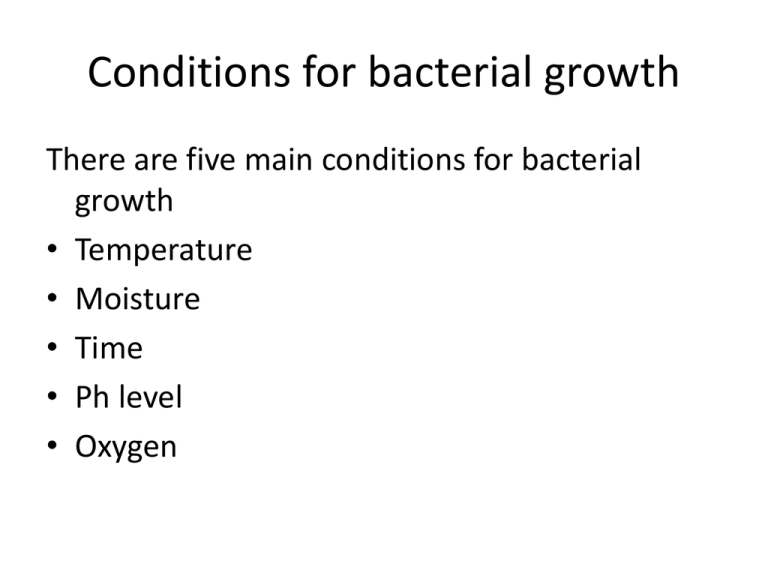
Conditions for bacterial growth There are five main conditions for bacterial growth • Temperature • Moisture • Time • Ph level • Oxygen Temperature • Bacteria grow best at 37C which is body temperature. They reproduce quickly between 3C and 63C which is the danger zone. Cook chilled food should be stored at 0C to 3C. • To control temperature food should be • Cooled to below 3C • Heated to above 63C Key temperatures • Above 121C all bacteria and spores are killed • 72C temperature of reheated food • 63C Food should be heated above this temperature • 3-63C danger zone for bacterial growth • -18C temperature of freezer • -22 temperature to freeze food. Moisture • Bacteria like moist conditions. Many foods contain liquid • Controls for moisture • Dehydration-removing the water like in dried milk • High sugar content- makes less water available like in jam • Salt removes water by osmosis like in bacon. • Freezing turns water into solids Time • Bacteria multiply rapidly. One bacterium can become one million in less than seven hours. • To control bacteria multiplying you should • Eat food as soon after it is made • Cool quickly and store in a fridge or freezer. PH Level • Bacteria grow best in a neutral PH between 6.6 and 7.5. They cannot survive below ph 4.5. • Ph levels can be controlled by acidity regulators which keep food below ph4.5. • Vinegar has a ph 3.5 and is used to preserve foods like onions Oxygen • Some bacteria but not all need oxygen to reproduce. • To prevent bacteria getting oxygen manufacturers use vacuum pack foods of a system known as MAP where the oxygen is removed and replaced with a less active gas. Cross contamination • Food handlers need to be very careful to prevent cross contamination. This can happen when • Raw food touches cooked • Raw juices drip onto cooked food • Hands, knives or chopping boards not cleaned in between use. • Dirty cloths being used to wipe with • Dirty towels being used to dry hands.
